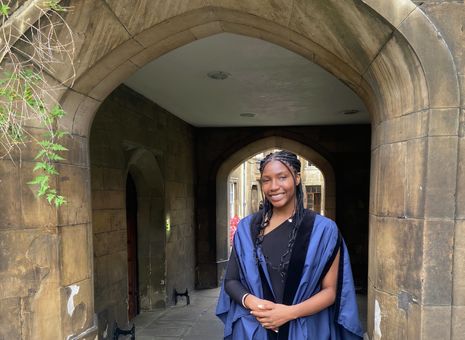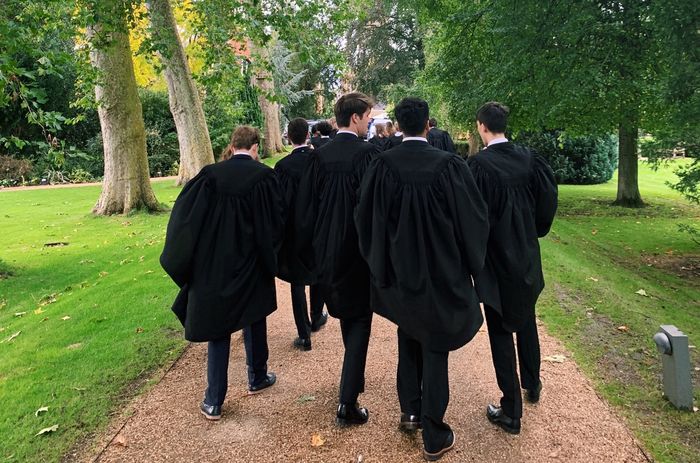If I’m not smart, am I anything?
Tirza Sey explores conflating intelligence with identity and the downfalls of seeking academic validation in an environment as academically rigorous as Cambridge

At school, termly reports were one of my favourite things to receive. I revelled at reading the teachers’ notes, showering 12-year-old me with academic praise. “She’s an inquisitive and bright learner” and “one of our highest achievers” would leap off of the page, lighting up my face. This piqued my realisation that I was smart, but I needed more justification. I quickly turned my focus onto exam grades — every A* or 100% I achieved was like a mini pocket of ecstasy.
My full ‘awakening’ was when I was placed onto the gifted and talented scheme. For context, I went to a state comprehensive school that was known for sports, not academics. Our cohort consisted of around 10 students who had ‘potential’ and ‘high prospects’. We would often hear about being the top 1% in our year and that we would be the few to get the highest grades. While I appreciated that my efforts were being recognised, it lulled me into the false belief that being smart was a rarity.
“Academic validation was the hand that lifted me up and kept me going”
My young, developing mind started to conflate intelligence with worth and I began to form a linearity between the two. This distortion occurred at the same time I was dealing with extremely low self-esteem. I couldn’t see any value within myself, anything that I could pride myself on, something to like. I felt as though I was trapped in quicksand, with my self-critical thoughts slowly submerging me. I was stuck and desperate for anything to clutch onto. Academic validation was the hand that lifted me up and kept me going. Or so I thought.
What was once merely gratifying soon became something I wholly depended on; I adopted the mindset that I wasn’t anything but smart. It became an integral part of my identity that I used to shield myself from the hate I was feeling inside. In all honesty, it worked for a while — I was finally being acknowledged by others for my intelligence. People were making an effort to talk to me and asked me for help with their work. I was consumed with temporary happiness that I was finally being noticed for something — my academic validation transpired into acceptance from my peers. I viewed my intelligence hyper-fixation as a form of demonstrating self-love; it felt safe. I was willing to indulge in this false sense of security because it protected me against my underlying issue of self-deprecation.
“Identity is intrinsically made up of several little pieces”
As soon I stepped into Cambridge, that safety blanket was torn away from me. My eyes welled up at the sight of my first essay covered in red marks, corrections, criticisms. I was forced to succumb to the realisation that being smart was the bare minimum and I began the vicious cycle of desperately finding something else to validate me. I was sinking in quicksand again, the self-critical thoughts attacking me with full force. I stretched out, but there was no hand to pull me out this time.
The façade of being an academically, high-flying person, a person that I had contrived over the years, slowly began to disintegrate. However, it was in these tough moments, that a silver lining appeared — I had two options, two paths that I could take. I could either continue my self-destruction and repeat my old self-hating behaviours, or I could choose not to. The former choice was tempting. I was used to it. Despite the emotional exhaustion, it felt comfortable, and to change would require strength that I believed I lacked. Nevertheless, I choose not to succumb to my old ways. That sudden shift in mindset changed the way I viewed life completely; I was no longer in quicksand. There were now dozens of hands lining up to help me out. I began to see myself as more than just being smart; it wasn’t easy, but I promised myself to keep pushing on. As my mum would always say “you have to bite the bullet”, and that’s exactly what I did.
Now, when I receive a rejection email, or get an essay back with corrections scribbled all over it, it doesn’t hurt so much, nor does it feel like a personal attack on my worth. If there is any advice that I can give, I ask that you take a step back and start seeing yourself the way others see you. Identity is intrinsically made up of several little pieces, and for me, intelligence is just a microcosm of it. It doesn’t define you, nor should it control the value you see within yourself.
 News / Hundreds of Cambridge academics demand vote on fate of vet course20 February 2026
News / Hundreds of Cambridge academics demand vote on fate of vet course20 February 2026 News / Judge Business School advisor resigns over Epstein and Andrew links18 February 2026
News / Judge Business School advisor resigns over Epstein and Andrew links18 February 2026 News / University Council rescinds University Centre membership20 February 2026
News / University Council rescinds University Centre membership20 February 2026 News / Petition demands University reverse decision on vegan menu20 February 2026
News / Petition demands University reverse decision on vegan menu20 February 2026 News / Caius students fail to pass Pride flag proposal20 February 2026
News / Caius students fail to pass Pride flag proposal20 February 2026










